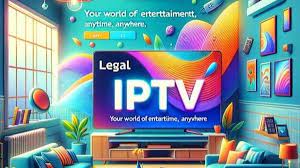The way people consume television has undergone a dramatic transformation in recent years, and iptv uk (Internet Protocol Television) is at the forefront of this revolution. With its ability to deliver a personalized and flexible viewing experience, IPTV has emerged as a popular alternative to traditional cable and satellite TV. This article explores what IPTV services are, how they work, their benefits, and the challenges they face.
What is IPTV?
IPTV refers to the delivery of television content over the internet using the Internet Protocol (IP). Unlike traditional broadcast methods like cable or satellite, IPTV allows users to stream media content directly to their devices. This approach provides a seamless and interactive experience, enabling viewers to watch live TV, on-demand videos, and even record their favorite programs for later viewing.
How IPTV Works
IPTV services operate through a client-server model, where the content provider delivers television programs to a client’s device over a broadband connection. Here’s a simplified breakdown:
- Content Acquisition: IPTV providers source content from various broadcasters, channels, and independent creators.
- Encoding and Storage: The content is digitized, compressed, and stored on servers.
- Streaming: When a user selects a program, the server streams the content over the internet to the user’s device.
- Playback: Users watch the content using an IPTV app or set-top box on their smart TV, computer, or smartphone.
Types of IPTV Services
IPTV services generally fall into three categories:
- Live Television: Provides access to live broadcasts of TV channels, including news, sports, and events.
- Video on Demand (VOD): Offers a library of movies, shows, and other video content for users to stream anytime.
- Time-Shifted TV: Allows users to watch previously aired programs or pause and resume live broadcasts.
Benefits of IPTV Services
- Flexibility: With IPTV, viewers can watch content on various devices, from smartphones to large-screen TVs, as long as they have an internet connection.
- Customization: IPTV platforms often allow users to select specific channels or content bundles, avoiding the need to pay for unwanted services.
- High-Quality Streaming: Advanced encoding technologies enable high-definition (HD) and ultra-high-definition (UHD) streaming.
- Interactive Features: Some IPTV services include features like picture-in-picture, program guides, and social media integration.
- Cost-Effectiveness: IPTV often costs less than traditional cable or satellite subscriptions while offering similar or superior options.
Challenges and Limitations
Despite its advantages, IPTV faces certain challenges:
- Internet Dependency: High-speed internet is a prerequisite, making IPTV less accessible in regions with poor connectivity.
- Latency Issues: Streaming may suffer from buffering or delays if bandwidth is insufficient.
- Regulatory Concerns: Content licensing and copyright issues can lead to disputes and restrictions.
- Piracy: The rise of unauthorized IPTV services offering illegal content creates challenges for legitimate providers.
The Future of IPTV
As internet infrastructure improves worldwide, IPTV is poised for substantial growth. Technologies like 5G and advancements in video compression are expected to enhance streaming quality and accessibility further. Additionally, the integration of artificial intelligence (AI) and machine learning will likely bring more personalized recommendations, improving user experience.
The popularity of IPTV services also aligns with the increasing demand for “cord-cutting,” where users abandon traditional cable subscriptions in favor of internet-based services. With the rise of smart homes and connected devices, IPTV is set to become an integral part of modern entertainment.
Conclusion
IPTV services represent a significant shift in how we consume television, offering unmatched flexibility, interactivity, and value for money. While challenges like piracy and dependency on high-speed internet persist, advancements in technology are steadily overcoming these hurdles. For viewers looking to break free from the confines of traditional TV, IPTV offers a compelling alternative that embodies the future of entertainment.

